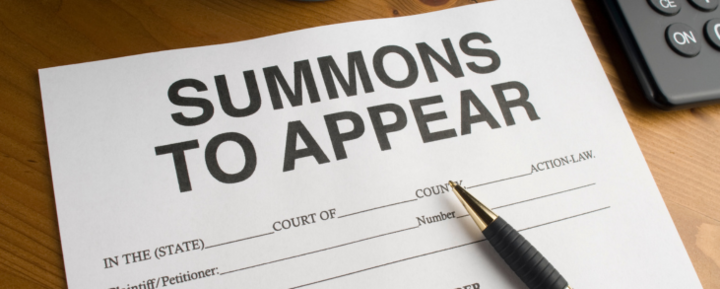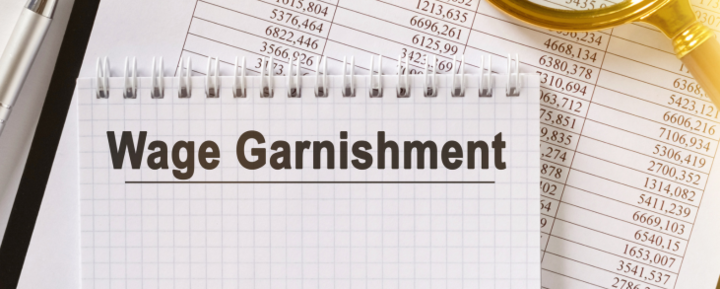Dealing with outstanding debts can be an all-consuming experience. Most U.S. adults have some type of debt, whether it’s a car loan, mortgage, or credit card bill. They manage it well by making regular payments. But, sometimes, things go awry. Administrative errors or blatant misrepresentations could mean you are wrongfully asked to pay a debt that isn’t yours. That’s when you need to put together a strategy for how to dispute a debt and win. Disputing a debt can seem daunting at first, but it doesn’t have to be. If you’re currently facing a debt dispute, here’s what you need to know to put together a winning game plan.
Understanding Debt Disputes
Before diving headfirst into disputing your debt, it’s helpful to make sure you understand debt collections and your legal rights. These are the building blocks that will help you form a strategy for how to dispute a debt and win.
Common Reasons For Disputing a Debt
There are typically five reasons to dispute debts:
- You believe you don’t owe the debt. For example, if the debt has already been paid. A copy of your credit report and information about any discharged debts is important to prove this.
- The debt belongs to someone else or cannot be verified. Remember, you may not be legally required to pay debts as a result of identity theft.
- The debt collector is asking for the wrong amount or other information is incorrect. This could be due to an administrative error on the debt collector’s side.
- The debt is for services that were not rendered. You will need to prove to the debt collector that you did not receive the item or services in question.
- The debt is time-barred. Each state has a different statute of limitations on debts. Be sure to check your local laws to understand if your debt is time-barred.
Once you have disputed the debt, the debt collector must halt their collection efforts. They should not resume until they’ve sent a verification that responds to the dispute.
Your Rights in Debt Dispute
Some debt collectors can become aggressive while trying to recover their funds. It’s important to remember the basics of debt collection and your rights throughout the dispute to make sure you are treated justly. Here’s what you have the legal right to in a debt dispute:
- To be treated fairly, without harassment: This means that debt collectors cannot verbally abuse anyone who answers the phone. Unless they have your consent, they are not allowed to call you before 8 a.m. and after 9 p.m.
- To be free from debt collection due to an identity theft-related debt: This is a common reason people legally dispute debt and win.
- To request verification of the debt: The debt creditor must provide you with information such as a bill or invoice to prove the debt.
- To dispute the debt within 30 days of first contact: The timeline for your debt dispute is very specific. This is why you shouldn’t delay taking action once you believe you have a legal reason for disputing your debt.
These legal rights are mostly found in the law known as The Fair Debt Collection Practices Act (FDCPA). If a debt collector violates your rights, you can file a complaint with the Consumer Financial Protection Bureau. You can also file a complaint with the Federal Trade Commission or your state’s Attorney General’s office.
Getting Started With the Dispute Process
Once you’re ready to dispute your debt, it’s time to gather all of your supporting evidence. Here’s what you’ll need to dispute your debt and win:
- Billing statements and communication with creditors: This information can help prove the status of the debt. For example, if a debt has already been paid – or it can help verify the proper amount of the debt. You should compare all your billing statements with letters from the debt collectors and highlight any discrepancies.
- Evidence of identity theft: If the debt has been improperly assessed against you due to identity theft, collect the documentation that proves your identity was stolen. This could be in the form of your credit report with a loan you don’t recognize. Or, it could be other documentation that proves a data breach or a police report.
- Initial debt collection letter: Review your first letter from the debt collector for any mistakes. Make sure the full name and account number of the original creditor are accurate. Verify the contact information of the original creditor is accurate.
- Confirm the statute of limitations: Depending on the type of debt, most states have statutes of limitations. Statute of limitations prevent debt collectors from taking action against old debts. Make sure the debt is not time-barred. If it is, you could have a case against the debt collection agency for violating the FDCPA.
A key to this process is staying organized. Don’t count on the collection agency to have all the information or to keep accurate records. You should make copies of every communication and continuously verify even the small details when dealing with debt collectors.
Writing a Debt Dispute Letter
If the collection agency does not provide a debt validation letter within five days of their first contact with you, you can request they send this so that you can be clear about the specifics of the debt they claim you owe. Once you’re clear that the debt is for the wrong amount, was already paid, or isn’t yours, you can formally dispute the debt by writing a debt dispute letter. The more detailed you make this letter, the better. The debt collection agency will be reviewing all of the information you send them against your own, so be as clear as possible when you’re writing your letter.
What to Include in Your Letter for Debt Dispute
Knowing how to dispute a debt and win all starts with writing a clear debt dispute letter. There are a lot of sample letters for sale online that claim to help you dispute your debt – but writing the letter is straightforward enough that you probably don’t need to pay for a template, just be sure to include the following information.
- Include your name and account number: This should be at the top of your letter and on every subsequent page.
- Ask the debt collector to verify the debt: Remind them that this is required by the Fair Debt Collection Practices Act. You can say something as simple as, “I am asserting my rights under the federal and state Fair Debt Collection Practices Acts and the Fair Credit Reporting Act.”
- Plainly state why you are disputing the debt. For example: I am disputing the debt because I do not owe it. You can attach supporting information.
- Ask the debt collector to provide you with additional information. They should provide details such as: The amount of the debt, the correct name of the creditor, verification of any judgment against you, or proof of the last payment.
- Request that the debt collector provide documentation proving they are licensed to collect debts in your state. They are legally required to include this information.
Keep in mind that your debt collector might have already reported this debt to a credit-reporting agency or credit bureau. You can request that they immediately inform them of this dispute because failing to report information correctly is a violation of the FCPA. This may prevent a disputed debt from negatively impacting your credit by making sure it does not show up on your credit report. You can ask for a copy of your credit report from Transunion, Equifax or Experian to verify that the credit agencies are not including your disputed debt.
The collection agency must also stop all collection activity while you are disputing the debt. You can also request that the debt collector cease phone calls about the debt, which you are legally entitled to ask for even if the debt is valid.
What if Your Dispute is Denied?
If a debt collector refuses and continues to contact you or you receive a letter stating they consider your dispute false, you still have options.
- File formal complaints: You can file a complaint with both the Consumer Financial Protection Bureau and the Better Business Bureau, both of which can work on your behalf to take action against the business.
- Work with a debt dispute attorney for legal advice: An attorney who specializes in disputing debt can help you plan for any next steps if it looks like you will have to face your debt collector in court.
How to Win a Debt Dispute
If your debt dispute proceeds to a lawsuit, it’s smart to consult an attorney on the next steps of your case. Your attorney will know your rights and be able to counsel you on the best way to win a debt dispute in court. You will need to formulate a response, with documentation, for each item listed in the formal complaint. You must file this response within the deadline listed in your jurisdiction. It’s possible that you could win your debt dispute, or negotiate a settlement, without having to go to court.
Bottom line
Filing a debt dispute can be a scary process – especially if you’ve never done it before – but it’s not a hopeless feat. If you can provide documentation as to why the debt collector’s demands are erroneous, it’s possible to dispute a debt and win before the process ever escalates to legal action. Make sure to keep extensive records and know your rights. You have legal protection against harassment and abuse from debt collectors.
Frequently Asked Questions on Debt Disputes
How Long Does the Debt Dispute Process Take?
Disputing a debt often takes between 30 to 45 days, but if additional documentation is required it could take longer. Keep in mind that while a debt is being disputed the debt collector must cease collection of the debt and cannot add interest or fees except those allowed by the original contract or state law.
What if I Can’t Afford a Lawyer?
You don’t need a lawyer to dispute a debt. You can contact your debt collector directly with a clear, concise letter and supporting documentation proving why the debt is not valid.
Does a Disputed Debt Affect My Credit Score?
Debt collectors must not report incorrect information to credit reporting agencies legally, so a disputed debt should not affect your credit score. If you believe a disputed debt may have been erroneously reported, you can request that the debt collector contacts the agency to inform them of the debt dispute, which they are legally required to do.





